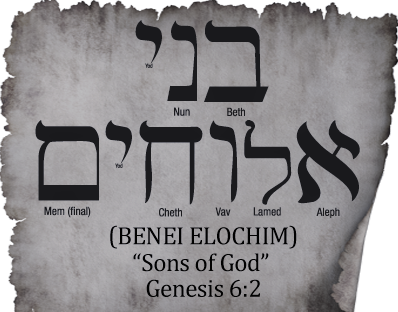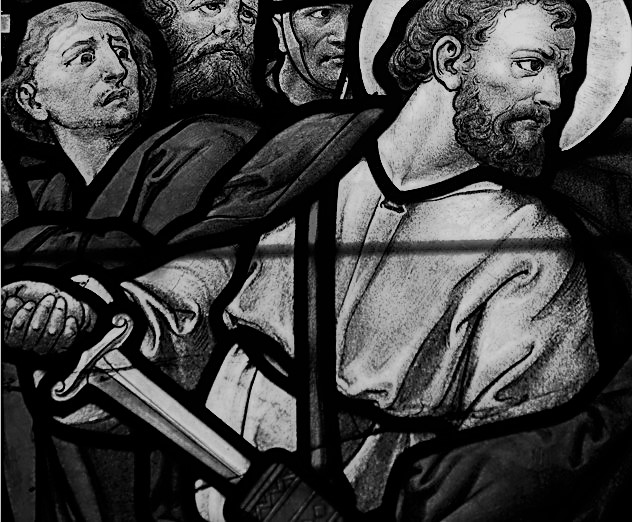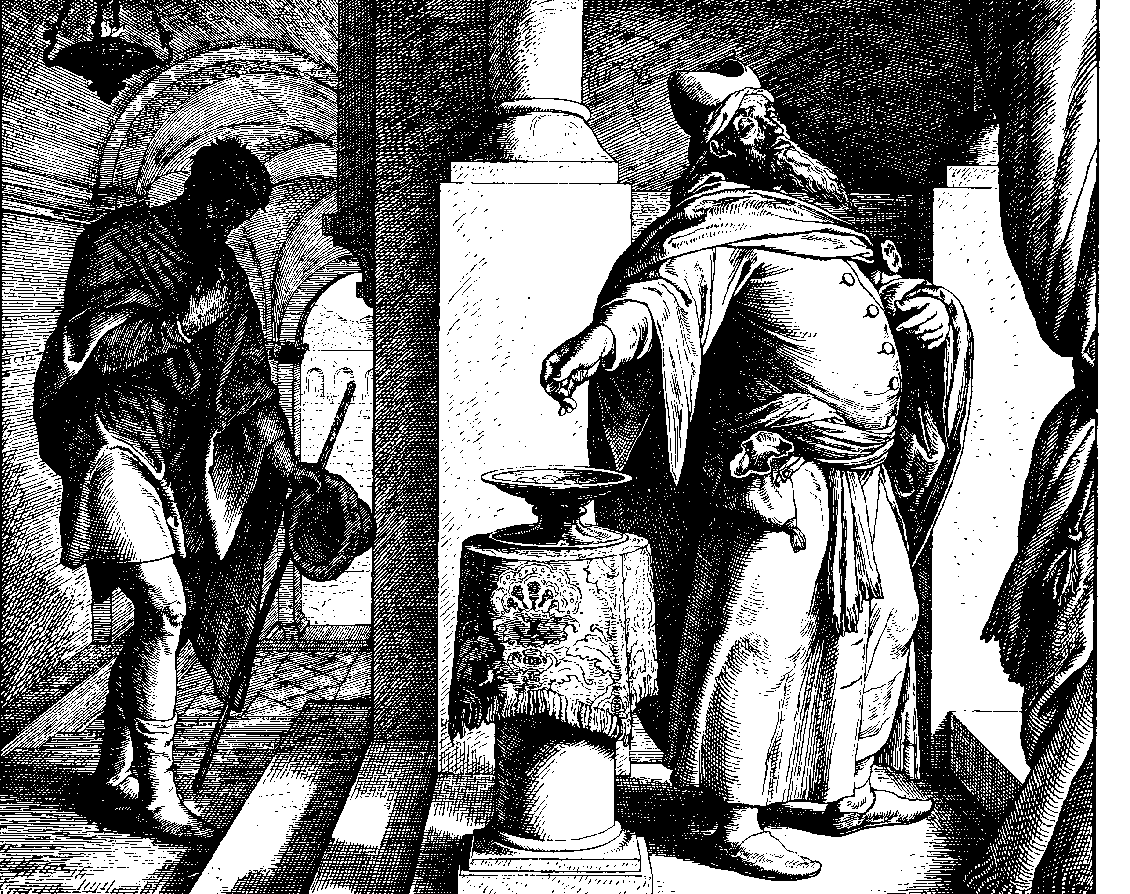
God, the supreme Husbandman, has revealed His divine wisdom through three distinct metaphors—each illustrating the present condition of the Church, the Jewish Nation, and the Gentile world.
The Gentile nations are portrayed as His field. As Scripture affirms in Matthew 13:38, “The field is the world.” From the outset, the Lord identifies the world as the soil into which He sows His word, the Lord being the Sower. In this sacred planting, the Word of God is cast like seed upon the nations, taking root where hearts are prepared to receive it.
The vineyard, once entrusted to the Jewish Nation, has now been given to the Church. This transfer was not arbitrary, but the result of a solemn forfeiture—when the leaders of Israel rejected their Messiah and crucified the Lord of glory. Thus, the stewardship of the vineyard passed into new hands, not by merit, but by divine appointment, that the fruit of righteousness might yet be cultivated.
Mat 21:39-43 And they caught him, and cast him out of the vineyard, and slew him. 40 When the lord therefore of the vineyard cometh, what will he do unto those husbandmen? 41 They say unto him, He will miserably destroy those wicked men, and will let out his vineyard unto other husbandmen, which shall render him the fruits in their seasons. 42 Jesus saith unto them, Did ye never read in the scriptures, The stone which the builders rejected, the same is become the head of the corner: this is the Lord’s doing, and it is marvellous in our eyes? 43 Therefore say I unto you, The kingdom of God shall be taken from you, and given to a nation bringing forth the fruits thereof.
The Lord describing the vine, that was once the Jewish nation, now as the New Testament Church.
Isa 5:1-7 Now will I sing to my wellbeloved a song of my beloved touching his vineyard. My wellbeloved hath a vineyard in a very fruitful hill: 2 And he fenced it, and gathered out the stones thereof, and planted it with the choicest vine, and built a tower in the midst of it, and also made a winepress therein: and he looked that it should bring forth grapes, and it brought forth wild grapes. 3 And now, O inhabitants of Jerusalem, and men of Judah, judge, I pray you, betwixt me and my vineyard. 4 What could have been done more to my vineyard, that I have not done in it? wherefore, when I looked that it should bring forth grapes, brought it forth wild grapes? 5 And now go to; I will tell you what I will do to my vineyard: I will take away the hedge thereof, and it shall be eaten up; and break down the wall thereof, and it shall be trodden down: 6 And I will lay it waste: it shall not be pruned, nor digged; but there shall come up briers and thorns: I will also command the clouds that they rain no rain upon it. 7 For the vineyard of the LORD of hosts is the house of Israel, and the men of Judah his pleasant plant: and he looked for judgment, but behold oppression; for righteousness, but behold a cry.
Joh 15:5 I am the vine, ye are the branches: He that abideth in me, and I in him, the same bringeth forth much fruit: for without me ye can do nothing.
The Transfer of the Vineyard: The Role of the Holy Spirit in Bearing Fruit
The Jewish nation, having failed to produce the fruits that God, the Husbandman, required, lost its stewardship over the vineyard. As a result, this responsibility was transferred to a new group, those who possess the Holy Spirit. This divine transition ensures that the vineyard will now yield the fruit God seeks. The guarantee lies in the presence of His Son within the vineyard itself, for Christ is the true vine. He alone is responsible for supplying spiritual nourishment to the branches, making certain they have all they need to flourish and bear fruit.
This time, the vineyard will indeed produce fruit. Importantly, the outcome no longer depends on human effort or merit, but solely on the work of the Holy Spirit within each believer, as emphasized in Galatians 5:22. Even if some believers grieve the Holy Spirit, as warned in Ephesians 4:30, there will still be those who yield the fruit that God the Father desires. This truth is further underscored by the warning that unfruitful branches will be removed from the vine, as stated in John 15:2 and 15:6. Therefore, the fruitful harvest in the vineyard is secured by the active presence and work of the Holy Spirit in the lives of believers.
The Fig Tree: A Symbol of the Law and Israel’s Righteousness
The question arises: if the Jewish nation was once considered the vineyard and that stewardship has now been removed, does this mean that God has completely rejected Israel as a nation? The answer is a resounding no. Even the Apostle Paul firmly refutes such an idea in Romans 11:1.
The fig tree has served as a symbol of the law from the very beginning. In the book of Genesis, Adam and Eve used fig leaves to cover their nakedness after their eyes were opened to their sin.
Gen 3:7 And the eyes of them both were opened, and they knew that they were naked; and they sewed fig leaves together, and made themselves aprons.
Our first parents in trying to hide their nakedness, inadvertently began the downward spiral of covering their sin with manmade covering. God had to set the record straight when he provided the coats of skins, showing that innocent life must be killed to provide the covering. The innocent for the unjust.
This introduction of the first covering was man’s attempt to hide from a Holy God, and a picture of their own righteousness. We see that the firstborn son, Cain, learned nothing when he tried to bring to God of the fruit of the ground; Gen 4:3. Of which God would not receive; Gen 4:5. Why? Because it was of his own hands and not with blood.
This is in type the Mosaic Law. It was given to the Nation of Israel to be their own righteousness. It was due to transgression;
The Significance of Coverings: From Fig Leaves to Sacrifice
Man’s Attempt to Cover Sin
When Adam and Eve first became aware of their nakedness, they attempted to conceal it by fashioning coverings out of fig leaves. This act represented humanity’s initial effort to address sin through self-made means, relying on the word of their hands to hide from a holy God. However, this solution was insufficient, as it failed to address the true nature of their transgression.
God’s Provision: The Coats of Skins
To correct this, God provided coats of skins for Adam and Eve, demonstrating that innocent life must be sacrificed to adequately cover sin. This act established a foundational principle: “the innocent given in place of the guilty”. The exchange foreshadowed the necessity of a greater, divinely appointed sacrifice for the redemption of humanity.
The Lesson Lost: Cain’s Offering
This principle was lost on Cain, the firstborn son, who attempted to present an offering to God consisting of the fruit of the ground. God did not accept Cain’s offering because it was the product of his own labor, not of faith, lacking the required element of blood sacrifice. This rejection highlighted the inadequacy of human efforts to achieve righteousness apart from God’s prescribed means.
The Mosaic Law: A Type of Self-Righteousness
The Mosaic Law, given to the Nation of Israel, served as a form of self-righteousness. Its introduction was a response to transgression, God providing a system by which the people could attempt to meet His standards. Yet, as demonstrated from the earliest interactions with God, true righteousness requires more than human effort—it demands the sacrifice that only God can provide.
Gal 3:19 Wherefore then serveth the law? It was added because of transgressions, till the seed should come to whom the promise was made; and it was ordained by angels in the hand of a mediator.
The law allowed them to come before God. It was only made for the nation of Israel. It was meant to be temporal until the new covenant came about. A school master, a teacher, preparing us for the final solution to sin, found in the righteousness of God in Christ.
Deu 6:24-25 And the LORD commanded us to do all these statutes, to fear the LORD our God, for our good always, that he might preserve us alive, as it is at this day. 25 And it shall be our righteousness, if we observe to do all these commandments before the LORD our God, as he hath commanded us.
Rom 3:20-22 Therefore by the deeds of the law there shall no flesh be justified in his sight: for by the law is the knowledge of sin. 21 But now the righteousness of God without the law is manifested, being witnessed by the law and the prophets; 22 Even the righteousness of God which is by faith of Jesus Christ unto all and upon all them that believe: for there is no difference:
Gal 3:23-25 But before faith came, we were kept under the law, shut up unto the faith which should afterwards be revealed. 24 Wherefore the law was our schoolmaster to bring us unto Christ, that we might be justified by faith. 25 But after that faith is come, we are no longer under a schoolmaster.
This divine sequence is evident even in the earliest biblical narratives: first, the works of man are presented, as seen in the fig leaves used by Adam and Eve, followed by God’s provision of coats of skins, symbolizing the necessity of the sacrifice that only God can provide. The pattern continues with the works of man through the Mosaic Law and ultimately with the redemptive work of Christ. The fig tree itself becomes a fitting symbol, representing the spiritual state of Israel in both past and future contexts.
Parables of the Fig Tree
The Lord Jesus employs the fig tree as a significant and recurring symbol to illustrate the spiritual condition of Israel.
Through a series of parables, Jesus reveals to His disciples both the present and the future state of Israel. These parables are carefully chosen to reflect not only the nation’s immediate response during His earthly ministry but also to foreshadow what lies ahead. The first instance of this parabolic imagery appears late in Christ’s ministry, as recorded in the Gospel of Luke. At this point, Jesus has spent nearly three years ministering, teaching, and calling Israel to repentance, making the symbolism of the fig tree especially poignant as a warning to the nation that their time for repentance was running out.
Luk 13:6-9 He spake also this parable; A certain man had a fig tree planted in his vineyard; and he came and sought fruit thereon, and found none. (7) Then said he unto the dresser of his vineyard, Behold, these three years I come seeking fruit on this fig tree, and find none: cut it down; why cumbereth it the ground? (8) And he answering said unto him, Lord, let it alone this year also, till I shall dig about it, and dung it: (9) And if it bear fruit, well: and if not, then after that thou shalt cut it down.
This parable is a direct reference to the nation as a whole. Whether the disciples , at the time, understood it or not, the reader is left with the understanding that Christ was now three years into his ministry. The nation is called to repent or face the judgment of God. The “dresser” of the vineyard is Jesus and he is making intercession unto the Father to allow the tree to continue another season after applying the proper fertilizer. Did the nation of Israel repent at the preaching of “The kingdom of God is at hand.”? The next time a fig tree is mentioned is the next season after Christ’s triumphant entry into Jerusalem, before his passion.
At the time, it is uncertain whether the disciples fully grasped the significance, but the message to the reader is evident: Jesus was now three years into His ministry. During this period, the nation was being called to repentance, with a clear warning that failure to do so would result in God’s judgment.
In the parable, the “dresser” of the vineyard represents Jesus Himself. He intercedes with the Father, requesting that the fig tree be given one more season to bear fruit after He applies the necessary care and fertilizer. This illustrates Christ’s intercession to the Father for mercy and additional opportunity for Israel to repent.
The critical question emerges: Did the nation of Israel respond in repentance to the preaching, “The kingdom of God is at hand”? The answer becomes apparent as the narrative continues. The next mention of a fig tree occurs in the following season, after Christ’s triumphal entry into Jerusalem and just prior to His passion, further emphasizing the nation’s response to His call.
Mat 21:18-19 Now in the morning as he returned into the city, he hungered. (19) And when he saw a fig tree in the way, he came to it, and found nothing thereon, but leaves only, and said unto it, Let no fruit grow on thee henceforward for ever. And presently the fig tree withered away.
The Fig tree still baren, even after Christ spent another season preaching the Kingdom of God and repentance. Now judgment is fallen. The “axe is laid at the root of the trees”; Luke 3:9. Christ will make the final declaration of Judgment to make it official. The nation is doomed.
Mat 23:37-39 O Jerusalem, Jerusalem, thou that killest the prophets, and stonest them which are sent unto thee, how often would I have gathered thy children together, even as a hen gathereth her chickens under her wings, and ye would not! (38) Behold, your house is left unto you desolate. (39) For I say unto you, Ye shall not see me henceforth, till ye shall say, Blessed is he that cometh in the name of the Lord.
The fulfillment of the murder of God’s Son and the Judgment of the wicked husbandmen, and the taking away of the vineyard is now written with an iron pen.
But the nation of Israel is not without hope because the final mention of the fig tree is one of redemption. In referring to the last days prior to the second advent of Christ, he gives the parable of the fig tree.
Mat 24:32-34 Now learn a parable of the fig tree; When his branch is yet tender, and putteth forth leaves, ye know that summer is nigh: (33) So likewise ye, when ye shall see all these things, know that it is near, even at the doors. (34) Verily I say unto you, This generation shall not pass, till all these things be fulfilled.
The fig tree, though cut down is, with its root, still alive. We see how God had dealt with the leader of the nation of Babylon. Nebuchadnezzar’s second vision is of the tree that was cut down but cared for in a way that kept it alive.
Dan 4:10-15 Thus were the visions of mine head in my bed; I saw, and behold a tree in the midst of the earth, and the height thereof was great. (11) The tree grew, and was strong, and the height thereof reached unto heaven, and the sight thereof to the end of all the earth: (12) The leaves thereof were fair, and the fruit thereof much, and in it was meat for all: the beasts of the field had shadow under it, and the fowls of the heaven dwelt in the boughs thereof, and all flesh was fed of it. (13) I saw in the visions of my head upon my bed, and, behold, a watcher and an holy one came down from heaven; (14) He cried aloud, and said thus, Hew down the tree, and cut off his branches, shake off his leaves, and scatter his fruit: let the beasts get away from under it, and the fowls from his branches: (15) Nevertheless leave the stump of his roots in the earth, even with a band of iron and brass, in the tender grass of the field; and let it be wet with the dew of heaven, and let his portion be with the beasts in the grass of the earth:
A temporary judgment. Not totally destroyed but left as a stump with a “band of iron and brass”.
The scripture tells us that the sown fig leaves was a covering that Adam and Eve had made with their own hands; Gen 3:7. The Law was considered the works and righteousness of the nation of Israel. They were to “do all these statutes” that in doing God , “might preserve us alive” and again “it shall be our righteousness”. Just as our first parents thought that the fig leaves would cover their sins, even now, man thinks that keeping of commandments will protect against the judgment of a Holy God. Paul warns against such false covers.
Rom 3:20 Therefore by the deeds of the law there shall no flesh be justified in his sight: for by the law is the knowledge of sin.
The fig leaves was a sign of their sin, even as the law is a reminder of ours today. Paul did not want to be bound by that form of self-righteousness.
Php 3:9 And be found in him, not having mine own righteousness, which is of the law, but that which is through the faith of Christ, the righteousness which is of God by faith:
The Fig Tree and the Nation of Israel: Parabolic Insights
The Significance of the Fig Tree Putting Forth Leaves
The sign of the fig tree “putting forth leaves” this author interprets as the nation of Israel re-emerging into national prominence, particularly as it seeks to restore the Mosaic laws and practices. This revival implies the reinstatement of blood sacrifices, which in turn necessitates the existence of a temple.
The Parables: Field, Vineyard, and Fig Tree
When considering the parables of the field, vineyard, and fig tree together, a comprehensive perspective emerges. Even in a world marked by sin and rebellion, a world that is moving toward a final confrontation with the divine, there remains a remnant preserved by God. The imagery describes a vast field, within which lies a small vineyard surrounded by wild beasts, and even within this vineyard stands a solitary tree. This presents a picture of an oasis in a barren region.
This theme is echoed in another of Christ’s parables, where a man discovers a hidden treasure in a field. To secure his ownership, he purchases the entire field with the intention of returning to claim the treasure. This parable, referenced in Matthew 13:34, is believed to symbolize Israel, as supported by Exodus 19:5.
Conclusion
Since the primary focus here is on the Field, Vineyard, and Fig Tree, further exploration is left to the reader. These parables collectively offer profound insights into God’s preservation of a remnant of both the elect of the Church of God and Israel and even of the gentiles.
2Ti 2:15 Study to shew thyself approved unto God, a workman that needeth not to be ashamed, rightly dividing the word of truth.




